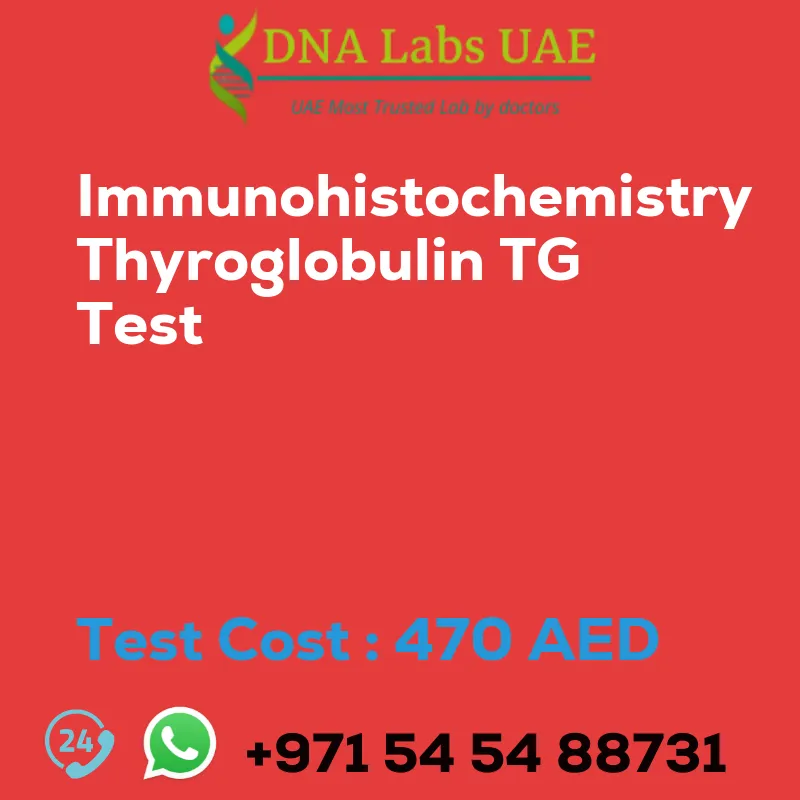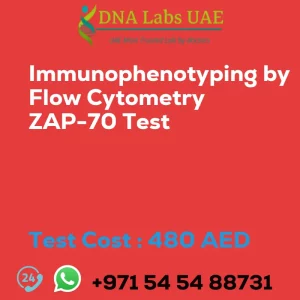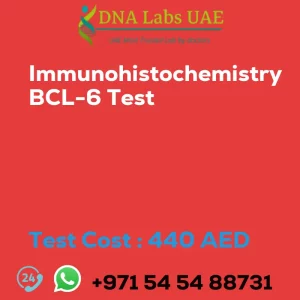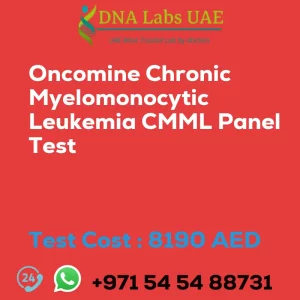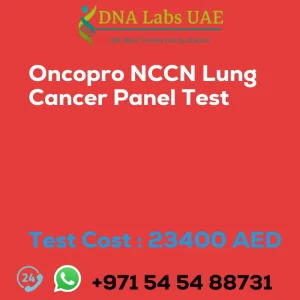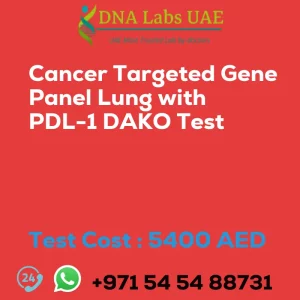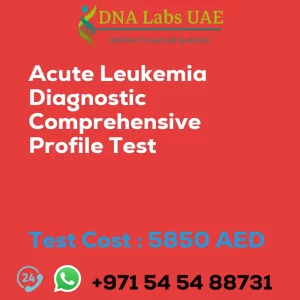IMMUNOHISTOCHEMISTRY THYROGLOBULIN TG Test
At DNA Labs UAE, we offer the IMMUNOHISTOCHEMISTRY THYROGLOBULIN TG Test at a cost of AED 470.0.
Test Components
- Price: 470.0 AED
Sample Condition
To perform the test, please submit tumor tissue in 10% Formal-saline or a Formalin-fixed paraffin-embedded block. The sample should be shipped at room temperature. Additionally, provide a copy of the Histopathology report, the site of biopsy, and the clinical history.
Report Delivery
- Sample: Daily by 6 pm
- Report Block: 5 days
- Tissue Biopsy: 5 days
- Tissue large complex: 7 days
Method
The IMMUNOHISTOCHEMISTRY THYROGLOBULIN TG Test is performed using the immunohistochemistry (IHC) technique.
Test Type
This test is specifically used for detecting cancer.
Doctor
This test is typically conducted by an Oncologist or Pathologist.
Test Department
This test is conducted in the DNA Labs UAE Test Department.
Pre Test Information
Prior to the test, please provide a copy of the Histopathology report, the site of biopsy, and the clinical history.
Test Details
Immunohistochemistry (IHC) is a technique used to visualize the presence and localization of specific proteins in tissues using antibodies. The IMMUNOHISTOCHEMISTRY THYROGLOBULIN TG Test is specifically used to detect the presence of thyroglobulin protein in thyroid tissue samples.
Thyroglobulin is a protein produced by the thyroid gland and is involved in the synthesis and storage of thyroid hormones. It is typically found within the follicular cells of the thyroid gland and can be used as a marker for thyroid cancer or other thyroid-related disorders.
During the TG test, a tissue sample, usually obtained through a biopsy or surgical procedure, is fixed onto a glass slide. The sample is then treated with specific antibodies that are designed to bind to thyroglobulin. These antibodies are usually labeled with a colored or fluorescent tag for visualization.
If thyroglobulin is present in the tissue sample, the antibodies will bind to it, forming a visible stain or fluorescence signal. This allows pathologists to identify the presence and localization of thyroglobulin within the tissue, aiding in the diagnosis and management of thyroid disorders.
The TG test can be particularly useful in assessing the presence of residual or recurrent thyroid cancer after surgery or radioactive iodine treatment. It can also help differentiate between benign and malignant thyroid nodules or evaluate the effectiveness of thyroid cancer treatment.
Overall, the IMMUNOHISTOCHEMISTRY THYROGLOBULIN TG Test is a valuable tool in the field of pathology for detecting and characterizing thyroid-related disorders by visualizing the presence and localization of thyroglobulin protein in tissue samples.
| Test Name | IMMUNOHISTOCHEMISTRY THYROGLOBULIN TG Test |
|---|---|
| Components | |
| Price | 470.0 AED |
| Sample Condition | Submit tumor tissue in 10% Formal-saline OR Formalin fixed paraffin embedded block. Ship at room temperature. Provide a copy of the Histopathology report, Site of biopsy and Clinical history. |
| Report Delivery | Sample Daily by 6 pm; Report Block: 5 days Tissue Biopsy: 5 days Tissue large complex : 7 days |
| Method | Immunohistochemistry |
| Test type | Cancer |
| Doctor | Oncologist, Pathologist |
| Test Department: | |
| Pre Test Information | Provide a copy of the Histopathology report, Site of biopsy and Clinical history. |
| Test Details |
Immunohistochemistry (IHC) is a technique used to visualize the presence and localization of specific proteins in tissues using antibodies. The thyroglobulin (TG) test is an IHC test specifically used to detect the presence of thyroglobulin protein in thyroid tissue samples. Thyroglobulin is a protein produced by the thyroid gland and is involved in the synthesis and storage of thyroid hormones. It is typically found within the follicular cells of the thyroid gland and can be used as a marker for thyroid cancer or other thyroid-related disorders. During the TG test, a tissue sample, usually obtained through a biopsy or surgical procedure, is fixed onto a glass slide. The sample is then treated with specific antibodies that are designed to bind to thyroglobulin. These antibodies are usually labeled with a colored or fluorescent tag for visualization. If thyroglobulin is present in the tissue sample, the antibodies will bind to it, forming a visible stain or fluorescence signal. This allows pathologists to identify the presence and localization of thyroglobulin within the tissue, aiding in the diagnosis and management of thyroid disorders. The TG test can be particularly useful in assessing the presence of residual or recurrent thyroid cancer after surgery or radioactive iodine treatment. It can also help differentiate between benign and malignant thyroid nodules or evaluate the effectiveness of thyroid cancer treatment. Overall, the immunohistochemistry thyroglobulin (TG) test is a valuable tool in the field of pathology for detecting and characterizing thyroid-related disorders by visualizing the presence and localization of thyroglobulin protein in tissue samples. |

